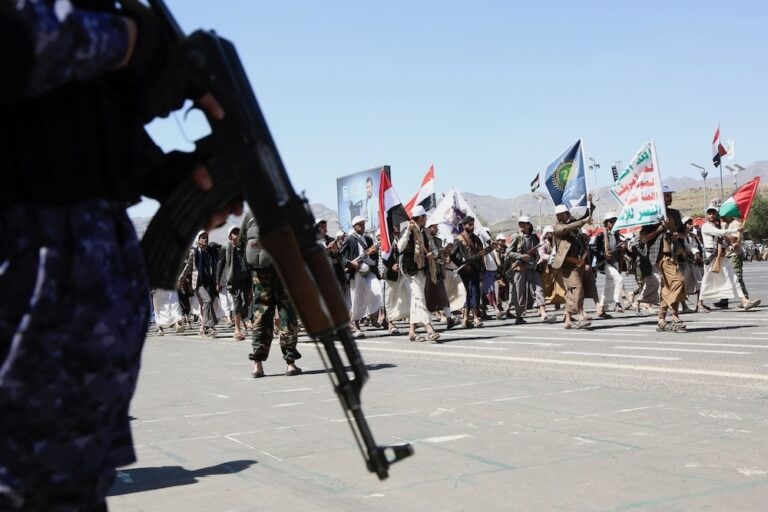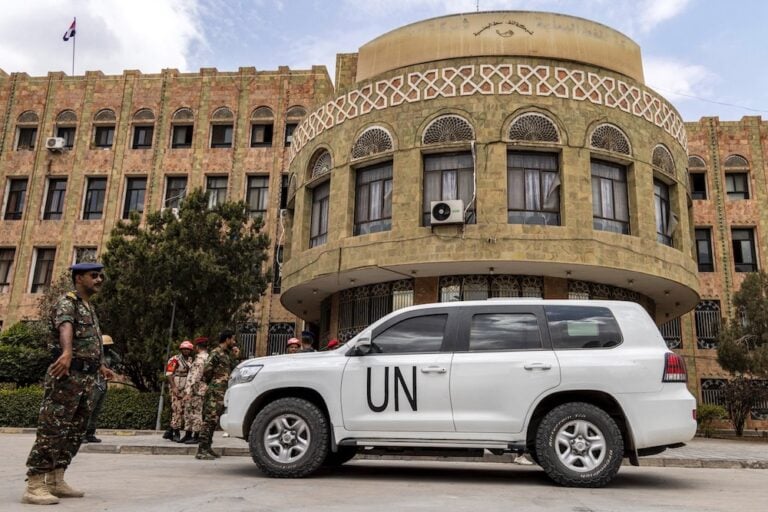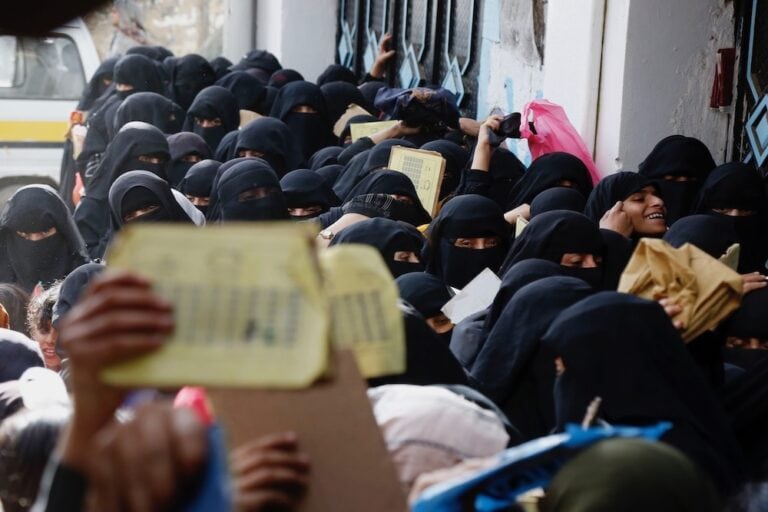In the first quarter of 2023, Yemen experienced a total of 12 reported internet shutdowns.
This statement was originally published on article19.org on 19 October 2023.
We, the undersigned local and international human rights organisations, strongly condemn the ongoing internet blocking and censorship in Yemen. We call for immediate action to put an end to this alarming violation of digital freedom, the right to access information, and the right to protest. We remind authorities in Yemen that the right to freedom of expression and to peaceful assembly are guaranteed under Articles 19 and 21 of the International Covenant on Civil and Political Rights (ICCPR), which Yemen has ratified.
On 25 September 2023, the eve of the commemoration of the 26 September Revolution and when Yemen became a republic, the Media Freedom Observatory in Yemen reported that YemenNet, the state-owned telecommunications company currently under the control of the Houthi forces, blocked communication platforms including Zoom, Google Meet, and Signal. These internet access restrictions were promptly followed by Houthi de facto forces carrying out an alarming wave of arrests of demonstrators, most of whom were peacefully gathered to commemorate the day.
The measures carried out by YemenNet in September are the latest in a long history of internet shutdowns and censorship in Yemen, which has intensified since the start of the conflict in 2015 between the Houthi forces and the Saudi-led coalition. Since 2017, Yemen has witnessed a series of internet disruptions and blockages of social media and messaging platforms, reportedly carried out by the de facto Houthi forces. In 2019, Yemen witnessed the highest rate of internet shutdowns in the Middle East.
Ongoing ‘cyber war’
Attacks on internet infrastructure, control over telecom facilities, internet shutdowns, and censorship have been used by the different parties to the conflict in Yemen since 2015, constituting what can be described as a ‘cyber war’ and part of a conflict strategy to control telecommunication and information sector,which continues to impact the overall quality of internet services.
More recently, in the first quarter of 2023, Yemen experienced a total of 12 reported internet shutdowns. These incidents affected several regions including Shabwah, Taiz, Aden, Hadramaut, Marib, and Abyan, lasting from a few hours to more than a week. The causes behind these shutdowns ranged from technical problems and floods to unidentified causes. In June 2023, three more internet shutdowns were reported in Taiz and Hadramut, lasting from one to three days. These internet disruptions have been attributed to both sabotage activities and political reasons.
In a context of conflict and political unrest, total or partial internet shutdowns have a detrimental impact on daily life in Yemen. Restrictions on internet access affect Yemenis’ right to communicate, to access and exchange information, and other basic human rights such as health and education at a time where Yemen is experiencing one of the world’s worst humanitarian crises.
YemenNet represents the primary internet service provider in Yemen, apart from Aden Net, recently established by the internationally-recognised government, with a subscriber base of nearly 20,000. As the majority of Yemenis continue to depend on YemenNet, any total or partial internet shutdowns and blockages of communication and social media platforms carried out by the company affect all Yemeni governorates, with the exception of the subscribers to Aden Net.
As part of this deteriorating situation for freedom of expression and the continuous crackdown on freedom of expression and media freedom, it was reported that since Houthi forces took control of the Yemeni capital in 2015, a dozen news websites that are classified as not aligned with the Houthi forces’ authorities are currently blocked. The news outlets include Al-Masdar Online, Khabar Agency, Mereb Press, Al-Wahdawi net, Al-Eshteraky.Net and other major news outlets such as Al-Arabiya, Al-Jazeera, and Al-Arabi Al-Jadid. The blocking represents a serious violation of the fundamental right to press freedom as well as citizens’ right to access to information and knowledge.
We call on the Houthi de facto forces to cease internet shutdown measures and immediately lift the blockage on news websites and social media platforms in Yemen in line with the country’s obligations under the ICCPR.



